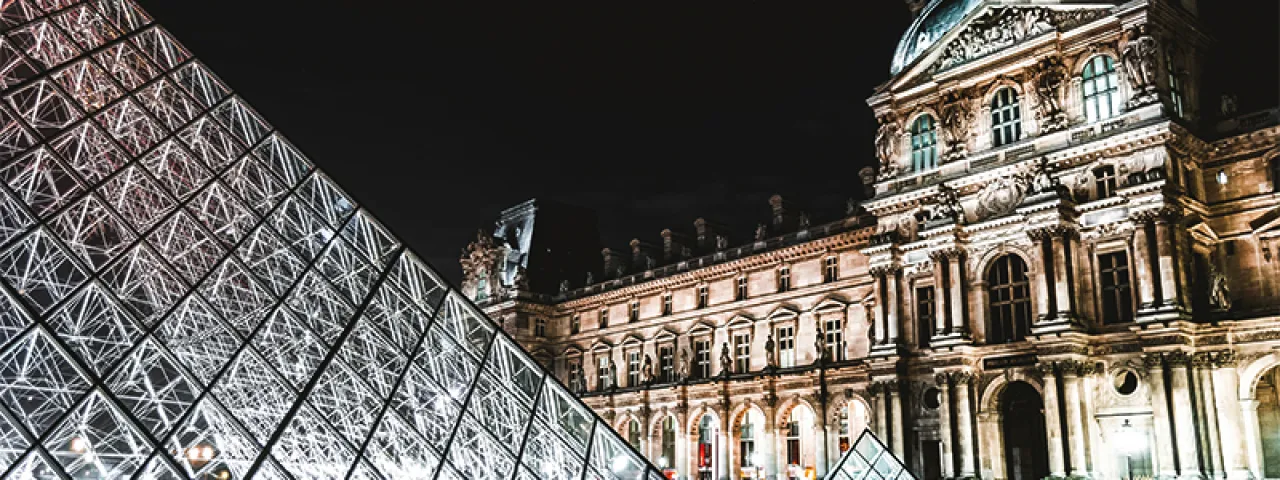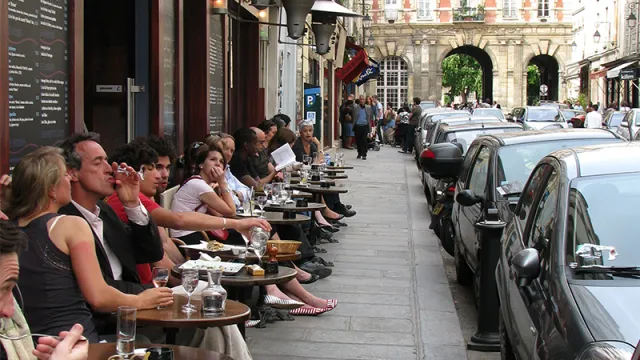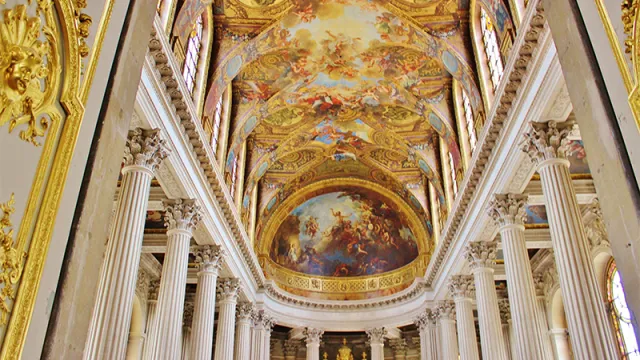About the Smith Center
Situated in the heart of Montparnasse, the Smith Center is housed at the renowned Reid Hall Global Center, a focal point of intellectual and cultural exchange for over a century. This is where the academic director and the administrative director have their offices. In addition, the Smith Center offers students a library, computer facilities, and classrooms. The academic director in Paris, appointed annually from the Smith College faculty, oversees the program, provides academic advising and offers guidance to university life in France. The program administrative director, a French resident, offers additional support and practical assistance on living in France. Students pledge to speak French at the Smith Center.
Tutoring
To supplement regular university coursework, special tutorials, arranged by the faculty director in consultation with individual students and based upon individual needs, are offered at the Smith Center.
Smith Center Courses
Please note: The following are typical courses taught at the center; actual courses may vary from year to year.
Langue AVANCEE 1
Offered in the fall
The objective of this course is to help students obtain French speaking and writing skills that are clear, logical, and well structured. In addition, the students will be exposed to correct grammar usage, a rich vocabulary, and the nuances behind expressions all of which can be found in the exploration of French culture. This course consists of a balance between the written and oral activities (structural exercises in grammar and vocabulary-both oral and written, presentations, stories, essays, discussions/debates, and reading/listening tests).
Langue AVANCEE 2
Offered in the fall
The goal of this course is to provide the students with several devices and techniques that will improve their writing skills. More precisely, we will focus on the specific constraints attached to "academic writing": the way the arguments are structured, organized, formulated in the French tradition of academic texts. Among other things, we will study ways to make the sentences more concise and efficient; we will also see how to formulate ideas in a simple and clear way. Grammatical and syntactic rules will be reminded if it appears necessary. This language course is designed for more advanced students in French.
La France aujourd’hui : une société fracturée dans une démocratie en danger?
Offered in the fall
France, “homeland of Human Rights,” “welcoming land” and founding country of the European Union? Absolutely, however, over the past 20 years, out of the five presidential elections, three have seen the far right reach the second round. How to explain this rise of nationalist and xenophobic ideas? France is not alone in experiencing this phenomenon. All of Europe is seeing the resurgence of far-right populist parties, some of which are or have been in power.
To try to understand the specific case of France, we will focus in this course on the French political system and the crisis it is currently going through, but also on the debates that have agitated French society in recent decades, such as immigration., discrimination, secularism, the colonial heritage or even feminism.
The course aims to provide students with a more in-depth knowledge of French society by analyzing the historical roots of the current tensions that prevail in France and by studying political and social news.
Françafrique: Enjeux, Histoire et politique
Offered in the fall
From 1850 to 1960, France's fate and that of Africa have been connected. To some extent, France and Africa have a common history which was led jointly by French regularity in Africa for several centuries, by the presence of Africans on the hexagonal soil, by the presence of African deputies at the Bourbon palace under the IV Republic and, recently, by immigration. We will see how this relationship is strangely prolonged, even strengthened after decolonization.
Sciences, art et cuisine
Offered in the fall
As true culinary alchemists, cooks and pastry chefs mobilize their knowledge and their senses to produce the best and constantly invent new recipes, in skillful games of flavors and textures. "Cooking, without ceasing to be an art, will become scientific" announced Escoffier in the preface to his culinary guide (1907)".
Properties and origins of ingredients, mechanisms of their transformation, taste and nutritional values, emotions aroused by a dish: between nature and culture, materials and manners, culinary science sheds light on all stages of our food.
This course will be an opportunity to approach gastronomy in an interdisciplinary way, by discussing themes as varied as they are complementary such as human evolution and the diet of our ancestors, the ecological issues of sustainable food production capable of feeding humanity, the scourge of malnutrition (deficiencies and undernutrition on the one hand, obesity, diabetes, cancer on the other), the cultural aspects of our diets, new trends (paleo diet, veganism, raw food, ...), the culinary arts (from Lent to molecular cuisine), fermented foods, the heritage issues of our diet, wine and other beverages (alcoholic or not), etc.
The course will also include three immersion sessions in the kitchen: two technical workshops/demonstrations and a lunch with service follow-up (in the kitchen and in the dining room) in an professional restaurant.
Une année à Paris: Comment réussi/r votre projet
Offered in the fall
This fall semester seminar has two intertwined goals: to reflect upon the choices you make during your time in Paris and to do so in the context of cultural differences; and to provide guidance and support as students search for and apply for lab placements and/or internships in either the spring semester or summer. This seminar is required for Sciences à Paris students and it is open to all students. 2 credits (S/U).
Ecrire/s’écrire
Offered in the spring
This grammar and composition course aims to enhance your reading and writing skills while offering the opportunity to read closely and critically and to discover the autobiographical genre in contemporary French literature. Every week, you will be assigned a reading that will be discussed in class (your participation is mandatory). As the semester goes by, you will feel more at ease with reading, writing and discussing complicated concepts or ideas in French. You will write several compositions, and will be asked, at the end of the semester, to create your own piece of autobiographical fiction, or “autofiction”, based on notions and literary themes that we will explore together. By reading and writing so systematically, you will learn how to construct more complex sentences and develop your thoughts in French in a more accurate way. In other words, this is not a typical grammar class, but you will improve your grammar in a very concrete way.
Le Théâtre Contemporain sur la Scène Parisienne: Analyse de Spectacle
Offered in the spring
This course has three main objectives: its first objective is the discovery of some of major theatrical sites in Paris and in the suburbs). Students will become familiar with trends and the contemporary scene, and will learn - the second objective of the course - how to analyze a mise en scène and develop methodological and aesthetic thoughts. Finally, for the third objective, the course will give the opportunity to read the study of dramatic works, belonging to the repertoire as well as contemporary writings.
L’union européenne
Offered in the spring
This course aims to make students understand the challenges facing Europe as well as the major current debates, both economic and political, through the study of the European Union of today and yesterday. We begin by analyzing the logic that led to Europe and its origin. Next, we discuss the various economic policies to see what are the current issues. Finally, we also study the institutional and legal framework of Europe, which lies at the heart of its construction, as well as current, major issues.


